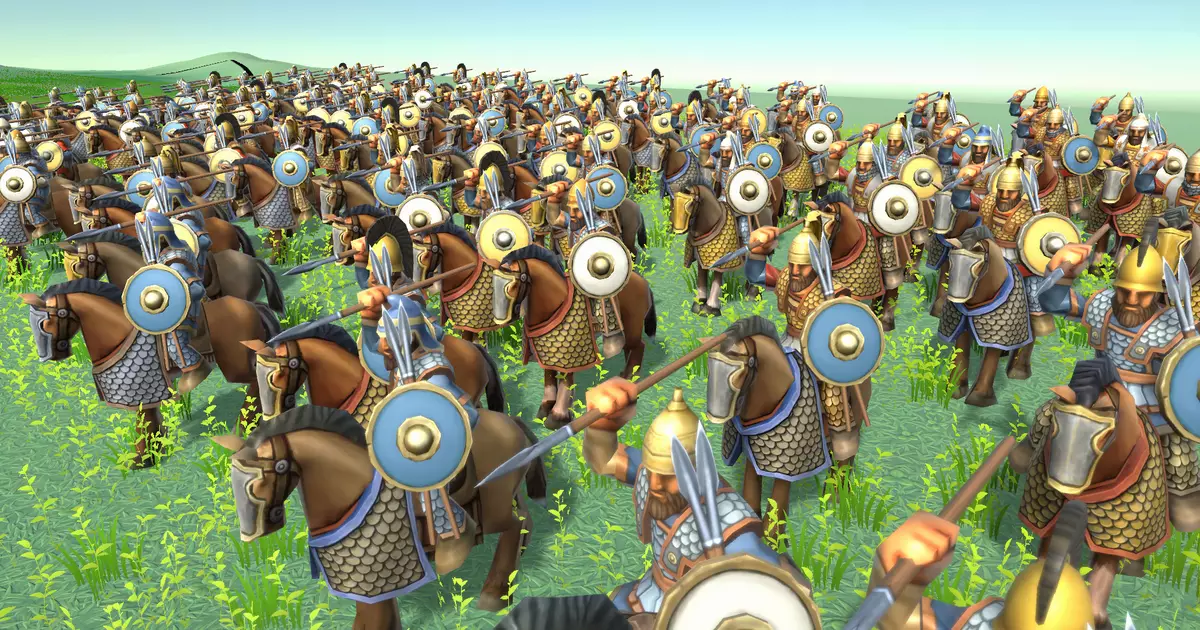In the ever-evolving landscape of video game development, it’s not common to see independent projects garner the attention reserved for big franchises. Yet, under the venerable MicroProse banner, a fresh gem is emerging from the shadows: Strategos. This real-time tactics wargame is set against the rich tapestry of classical antiquity and presents not just an opportunity for players to engage in historical battles but also to find resonance with the grandeur of the past—think Total War, but with a distinctive spin that sets it apart.
At first glance, the allure of Strategos certainly merits comparison to illustrious franchise titles like Total War: Rome. However, a closer examination reveals that this comparison might fall short. Unlike the expansive strategy layers that Total War has come to represent, Strategos focuses more intently on the visceral thrill of battle. Developed by a single designer and a team of contracted artists, this game promises an intimate, detail-oriented experience—not a sprawling empire management simulation that can overwhelm historically-minded players.
A Deep Dive into Gameplay Mechanics
One of the core features of Strategos that sparks intrigue is its commitment to tactical fidelity. With over 120 factions and 250 unique units, the diversity presented is staggering. Gaming enthusiasts can engage with armies you might not commonly encounter outside a history lecture—Meroitic Kushites and Celtiberians, for instance. This eclectic mix tips its hat to the assorted, fascinating military histories that shaped the ancient world. Players are not just given an army; they are invited to command a living history.
Perhaps the most engaging aspect of Strategos is its sophisticated AI, an area that often overshadows many contemporary strategy games. In this title, designers have taken the mantle to address common drawbacks associated with AI in large-scale combat. The enhancements outlined—better flanking maneuvers, improved troop deployments, and more intelligent evasion techniques—suggest that battles will be less predictable, requiring players to outthink not just opponents but the system itself. As someone who has often found themselves frustrated by mundane AI behaviors in other titles, this focus on intricate strategies instills hope for a refreshing experience based on genuine military tactics.
The Human Element of Command
One crucial gameplay feature that distinguishes Strategos from its peers is the control system, which demands more than just tactical oversight; it necessitates proximity and communication. Generals must be within earshot of their troops to issue commands, or utilize couriers for orders. This seems a deliberate nod toward realism, reminiscent of earlier military simulations. In an age where many strategic games grant an omnipresent perspective, the engagement level rises significantly when players must manage their generational leaders between formations. This mechanic promises more engaging battles that echo the chaotic essence of ancient warfare.
The nostalgia induced by this system harks back to games such as the original Close Combat series, where the loss of communication could lead to disastrous outcomes. The developers have clearly understood the need for a mechanic that engages players, requiring them to be present in the moment, rather than removed from the battlefield’s gritty realities. Such an approach not only boosts tension but also fosters a deeper connection to the battles fought.
Strategic Customization and Historical Education
What further elevates Strategos into a realm of respectability is its emphasis on educational elements intertwined with the gaming experience. Players can immerse themselves in historically accurate encounters or engage in custom battles, thereby facilitating a rich understanding of various military operations across different eras. The inclusion of a historical battle simulator that allows players to engage in reenactments adds a layer of depth and encourages a greater appreciation for historical contexts.
Opting to lead historical figures in its campaign mode creates an opportunity for players to explore not just battle tactics but the broader implications of warfare, leadership, and strategy throughout history. The cerebral nature of this design reflects a deliberate attempt to blend entertainment with educational substance, a hallmark that greatly enriches the genre.
The Future of Tactical Gaming
As we peer into the world of Strategos, it becomes clear that this indie title holds the potential to shift the paradigm of real-time tactics games. With a framework that encourages active participation and a sophisticated AI, it redefines how players engage with ancient warfare. The meticulous craftsmanship that has gone into developing the game speaks volumes about the creator’s vision and dedication.
As gaming continues to evolve, so too does our understanding of how to convey historical narratives through interactive mediums. Strategos is evidently committed to delivering not just gameplay but a rich exploration of the complexities of war, leadership, and legacy. The echoes of strategy we listen to today may one day be the tales of those who shaped civilizations, waiting to be retold through the pixels of an engaging battlefield.


Leave a Reply